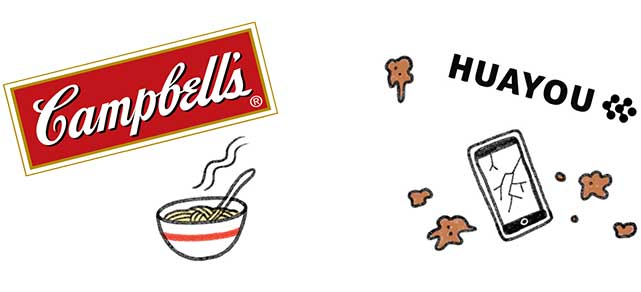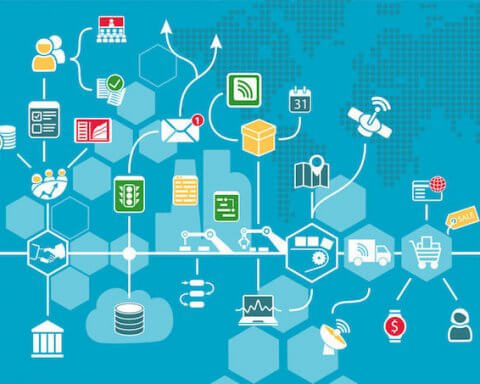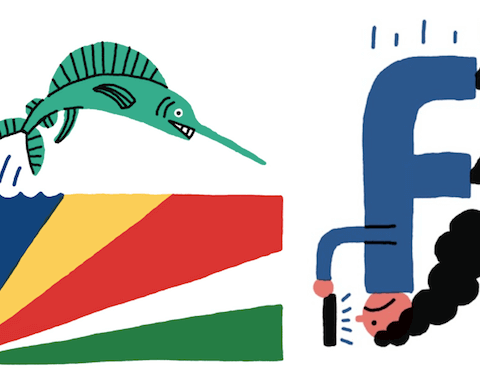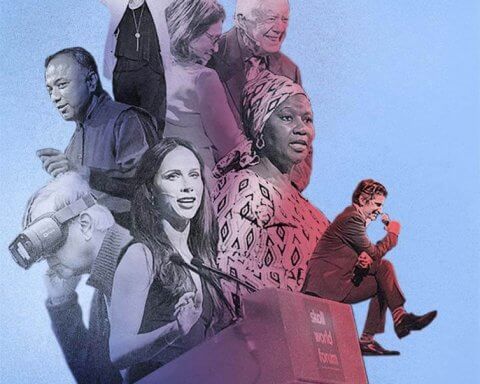Hero: Campbell Soup Company
In a significant break from its peers, American food processing giant Campbell Soup Company in January became the first major U.S. food company to begin labelling all of its domestic products with genetically modified (GMO) labels. It also declared its support for any federal legislative action requiring the adoption of a single mandatory GMO labelling standard. “Printing a clear and simple statement on the label is the best solution for consumers and for Campbell,” President and CEO Denise Morrison explained in an open letter to employees.
The company made clear it remains a strong proponent of including GMOs in many Campbell products, arguing that transparency is what consumers are clamouring for. Nationwide polls have consistently shown overwhelming support for increased GMO disclosure. An Associated Press-GfK poll conducted in 2014 found that two-thirds of Americans support labelling of GMOs on food packages, while a Mellman Group survey found 89 per cent of respondents in favour.
The battle over mandatory GMO food labelling in the U.S. has heated up in recent years, with perceived inaction in Congress leading to movements at the state level to pass their own labelling laws. Ballot initiatives in Oregon, California, Washington and Colorado have all rejected mandatory GMO efforts, with industry-led opposition devoting substantial resources to fighting these initiatives. In the Northeast, proponents have had more success. Vermont passed a law that would see the adoption of mandatory labelling of GM food by July 2016, although it is currently being challenged in court. Both Maine and Connecticut will adopt labelling only if a number of regional states jump on board first.
While Campbell is hopeful that a federal legislative fix will come about soon, it plans to move forward with its own GMO labelling system in the interim. It will maintain its present opposition to individual state labelling laws, arguing that these are confusing for consumers and manufacturers alike.
Large food and biotechnology companies in the U.S., along with industry groups such as the Grocery Manufacturers Association (GMA), continue to fight against both state and federal efforts to institute mandatory GMO labelling.
—
Zero: Congo Dongfang Mining International
Congo Dongfang Mining International (CDM) has been named as the largest purchaser of cobalt linked to child labour in the war-torn Democratic Republic of the Congo (DRC), according to a report released in January by Amnesty International and Africa Resources Watch. The DRC is the source of over 50 per cent of the world’s cobalt, with 20 per cent of its supply originating from smaller artisanal mines in the country’s south. UNICEF estimates that at least 40,000 children work in mines across the south in unsafe and toxic environments. At least 80 miners died underground in this region between September 2014 and December 2015.
Researchers for Amnesty International found that much of the output from these mines is purchased by traders that turn around and sell it to CDM, a wholly owned subsidiary of China’s Zhejiang Huayou Cobalt. The cobalt is processed by CDM and then sold to three major battery component manufacturers in South Korea and China. These manufacturers claim to supply a list of multinationals that includes Apple, Microsoft, Volkswagen and Sony. Cobalt is prized for its application in lithium-ion battery production.
This is not the first time that CDM has been linked to child labour in the Congo. After similar allegations surfaced in 2008, the company switched to sourcing cobalt exclusively from licensed traders that agreed to follow the company’s code of conduct. Yet when questioned by Amnesty researchers about their recent findings, the company responded that it “reasonably presumed that the behaviours of suppliers complied with relevant regulations of the DRC and [had] taken the corresponding social responsibilities.”
None of the 16 multinational corporations named in the report was able to provide enough information to independently verify that its supply chain was clean, although seven companies denied sourcing cobalt from either the CDM or the DRC. “Many of these multinationals say they have a zero tolerance policy for child labour,” said Amnesty International researcher Mark Dummett. “But this promise is not worth the paper it is written [on] when the companies are not investigating their suppliers.”
Cobalt was left out of the conflict minerals provision of the 2010 U.S. Dodd-Frank Act that required companies listed in the U.S. to report on any tungsten, tantalum, tin and gold sources from the DRC or surrounding regions appearing in their supply chain.







